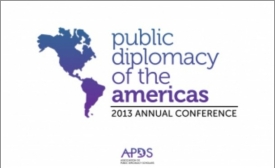latin america
The day that 17-year-old Israel Arenas Durán disappeared began, like most, with his mother making him breakfast. He ate with his father and 15-year-old brother, Irving, at a small wooden table outside the family's single-room home, overlooking the plant nursery they run in the northern Mexican state of Nuevo Leó.
For the second year in a row, Colombia has topped the list as the world’s happiest country, according to a survey released Thursday by WIN-Gallup. The survey known as the 2014 Barometer of Happiness and Hope reported that of the 1,012 Colombians polled, 86% self-reported as “happy,” while only 2% reported themselves as “unhappy.” This represents a rise of 9% from 2012 when 77% of respondents rated themselves as “happy.”
Cubans awoke on Friday for the first time in half a century with the right to buy new and used vehicles from the state without special permission, but price markups of 400 percent or more quickly dashed most people's expectations. A new Kia Rio hatchback that starts at $13,600 in the United States sells for $42,000 in Havana, while a fresh-off-the-lot Peugeot 508 family car, the most luxurious of which lists for the equivalent of about $53,000 in the U.K., will set one back a cool $262,000.
The election of Michelle Bachelet as Chile’s new president earlier this month saw the continuation in the rise of women to positions of political power throughout Latin America, garnering praise from analysts concerned with women’s rights in the land of machismo, at a time when the world's leading superpower has yet to see a female as its top leader.
Elections matter. And in the coming year Latin America will see no less than eight scheduled elections for president. From Honduras to Chile, the hemisphere faces a collective referendum on the ability of governments to recharge economic growth while meeting the increasing social demands of the people.
The 1971 Volkswagen bus, painted in the green, yellow and white of Brazil's flag, picked a good place to break down. Emilio Zagaia and Felipe Luis da Costa had just arrived in the small Guatemalan city of Coban. They were two Brazilians in a strange town, but they received some unexpected help right away. "The city's local Volkswagen club is looking for you," their mechanic told them. "They saw your car and took a picture of it."

The USC Center on Public Diplomacy was pleased to co-sponsor the Association of Public Diplomacy Scholars (APDS) 2013 annual conference on public diplomacy in the Americas.
In the wake of the Cuban revolution, many middle class Cubans emigrated to the United States. But in the intervening decades, Cuba’s universal public education has spawned new middle classes, of government officials, professional engineers and accountants, and in increasing numbers today, private entrepreneurs. Here’s how many Cubans fit the category of “middle class.”







